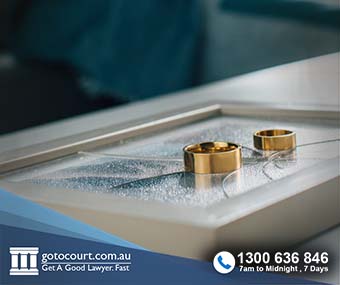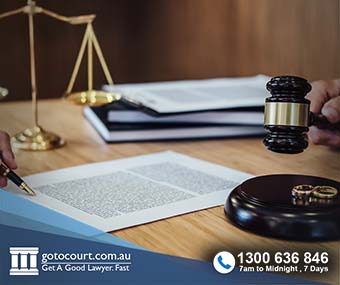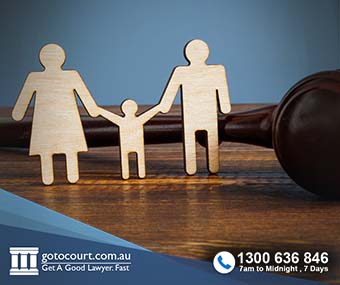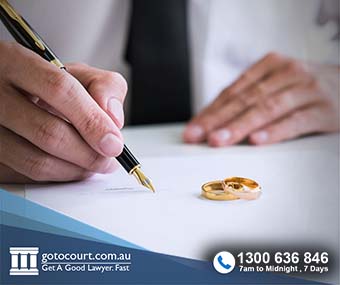Call our lawyers
now
or,
have our lawyers
call you
Capital Gains Tax and Property Settlements
Updated on Dec 29, 2022 • 5 min read • 608 views • Copy Link
Capital Gains Tax and Property Settlements
Upon separation, couples will usually seek property settlement. A property settlement is a binding legal arrangement dividing the assets and liabilities of parties to a relationship. Parties to property settlements often overlook the impact capital gains tax will have on the outcome. As part of a settlement, one party will often be obligated to transfer an asset to the other party. This type of asset transaction may be subject to capital gains tax.
What is capital gains tax?
Capital gains tax is a federal tax governed by the Income Tax Assessment Act 1997. Capital gains tax is payable on capital gain made by sale, disposal or transfer of most assets that were acquired after 20 September 1985.
Examples of assets that may incur capital gains tax are investment properties, shares, collectables, and art. There are also certain assets that are exempt from capital gains tax. Some examples are a person’s main residence, car, motorcycle and collectables acquired for a sum less than $500.
Capital gain is calculated as the difference between the proceeds received upon sale of the asset and the cost base of the asset. The cost base of the asset is usually the price that you acquired it for, and certain other costs associated with holding and disposing of the asset.
If an individual makes a capital gain, they are required to report this gain as a part of their income tax return. Accordingly, even though capital gains tax is assessed separately, it forms part of the individual’s income tax for that financial year.
Importantly for couples seeking a property settlement, a capital gains tax asset owned by them as joint tenants is to be treated as the couple owning the asset as tenants in common who own the asset in equal shares.
Approaches to property settlement
When couples separate, formal property settlement can be effected in the following ways:
- Court orders made by the Court under the Act, including orders made by the parties’ consent
- Orders made under laws similar to the Act in foreign countries;
- Binding Financial Agreements made under section 90C for married couples that have separated but are not yet divorced.
- Binding Financial Agreements made under section 90D for couples that are divorced
- Binding Financial Agreements made under section 90UD for de facto couples that have separated; and
- Arbitral awards under section 13H of the Act.
Capital gains tax rollover
Capital gains tax rollover is a special provision that applies when a capital gains tax event occurs due to the separation of a couple. Capital gains tax rollover applies in all of the formal ways of finalising a property settlement mentioned above.
Capital gains tax rollover will not apply to private transfer agreements between parties or transfers under Binding Financial Agreements between partners that do not directly relate to the breakdown of the relationship.
The parties cannot opt-in or choose when the rollover applies. If the circumstances of the transfer meet the criteria for a rollover than the rollover will apply regardless of whether the parties want it to apply or not.
The effect of a capital gains tax rollover is that the party that transfers the assets (the transferor) disregards the capital gain that would occur and the party that receives the asset (the transferee) is liable to pay capital gains tax when they dispose of the asset in the future. Accordingly, the capital gain is rolled over to the transferee. The transferor also transfers the cost base of the asset to the transferee.
Capital gains tax in asset valuation
When calculating the value of the assets available for division between parties, the court may have regards to the capital gains tax implications of asset disposal. If the Court were to consider capital gains tax it would form part of the section 79 and section 90SM considerations regarding alteration of property interests between parties.
In 1998, the Court established the following general principles in relation to capital gains tax in asset valuation.
Rosati v Rosati
They were laid out in the decision of Rosati v Rosati:
- Whether capital gains tax should be taken into account when determining the value of an asset or not will depend on the circumstances of the case. These circumstances are “the method of valuation applied to that particular asset, the likelihood or otherwise of that asset being realised in the foreseeable future, the circumstances of its acquisition and the evidence of the parties as to their intentions in relation to the asset.”
- Allowance should generally be made for any capital gains tax in assessing the value of that asset, if “the Court orders the sale of [that] asset, is satisfied of that a sale is inevitable, or would probably occur in the near future, or if the asset is one which was acquired solely as an investment and with a view to its ultimate sale for profit.”
- If none of the circumstances referred to above apply, but the Court thinks there is a “significant risk that the asset will be sold in the short- to mid-term”, it may take this into account as a section 75(2) factor. The weight to be given to this factor will be dependent on the how likely the asset is to be sold and when this is likely to occur.
- There may be special circumstances where even if there is no risk or likelihood of the sale of the asset, it may be appropriate for the Court to take into account the capital gains tax liability at the full rate or a discounted rate, depending on the risk of sale and the length of time likely to elapse before the sale.
If you require legal advice or representation in a family law matter or in any other legal matter, please contact Go To Court Lawyers.

Affordable Lawyers
Our Go To Court Lawyers will assist you in all areas of law. We specialise in providing legal advice urgently – at the time when you need it most. If you need a lawyer right now, today, we can help you – no matter where you are in Australia.How It Works







1. You speak directly to a lawyer
When you call the Go To Court Legal Hotline, you will be connected directly to a lawyer, every time.


2. Get your legal situation assessed
We determine the best way forward in your legal matter, free of charge. If you want to go ahead and book a face-to-face appointment, we will connect you with a specialist in your local area.


3. We arrange everything as needed
If you want to go ahead and book a fact-to-face appointment, we will connect you with a specialist in your local area no matter where you are and even at very short notice.






















